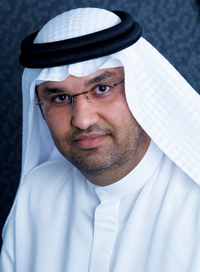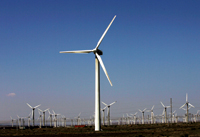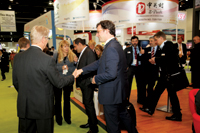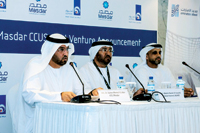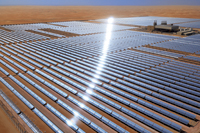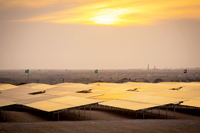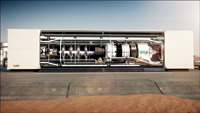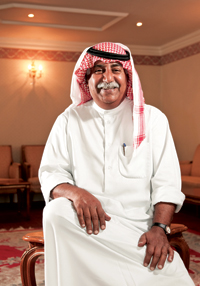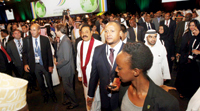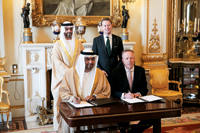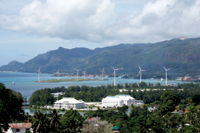
 Solar power ... more acceptance in Mena
Solar power ... more acceptance in Mena
A NEW study released by Masdar and Reed Exhibitions, and compiled by EY during the 2013 World Future Energy Summit (WFES) in Abu Dhabi, proposes a number of initiatives to accelerate the development of the solar industry in the Middle East and North Africa (Mena).
The “action agenda” section of the WFES insight report, ‘Realising the Promise of Solar Industry Development in the Middle East and North Africa’, draws on the recommendations of 40 global energy executives, analysts and government officials, gathered during a special executive roundtable during WFES 2013.
The five initiatives in the action agenda include developing a stable and transparent policy environment, infrastructure, market establishment, financing and local capacity building.
The report concludes that Mena faces a glowing future in solar technology due its natural advantages of abundant sunshine, a power grid and road network that could support a large solar industry, and governments that understand the value of developing renewable sources as part of their sustainable energy mix.
“The renewable energy sector today is much more aligned to energy markets and general economic fundamentals,” says Nimer AbuAli, Mena Cleantech leader, EY. “The affordability of renewable energy, and the important role it plays in the energy mix, is now more critical than ever. The vast consumption of fossil fuels by the giant economies of China and India to fuel their growth has grown at an unprecedented pace.
But this is done in parallel with an interest in renewable energy, and we now even see the oil-rich economies in the region starting to explore solar power and energy efficiency.”
According to the experts, governments are encouraging investment in the clean-energy sector to ensure energy security in the Mena region and to meet the growing energy needs of a rapidly expanding population.
“We believe the main advantage of the region is the strong solar irradiation, which means the production is much higher, and particularly favourable to high-efficiency technologies,” says Jean-Yves Daclin, director of Solar at Total/SunPower, one of the experts interviewed for the report. “Another aspect is that we have a lot of available land and, of course, when we think about building big power plants, this is very important.”
Dr Shawn Qu, chairman and CEO of Canadian Solar, another of the experts contributing to the report, says the company sees many advantages to operating in the Mena region. “High solar irradiation allows us to get higher efficiencies from our products, and plenty of flat surfaces allow solar professionals to easily install larger systems. Ambitious government strategies and plans that can be easily financed by the governments themselves or foreign investors are also more reliable and longer term than feed-in-tariffs (FITs).”
As of the action agenda, the report suggests that governments can contribute by developing clear and consistent long-term policies toward solar power as an alternative energy source, as well as addressing short- and medium-term planning needs. It also points out that the growing maturity of the renewable energy market will help to facilitate an improved understanding of financing for the sector by local banks.
Naji El Haddad, show director for the World Future Energy Summit, organised by Reed Exhibitions and hosted by Masdar, says the report demonstrates the thought-leadership role that WFES offers for the clean energy sector in the Mena region.







































































